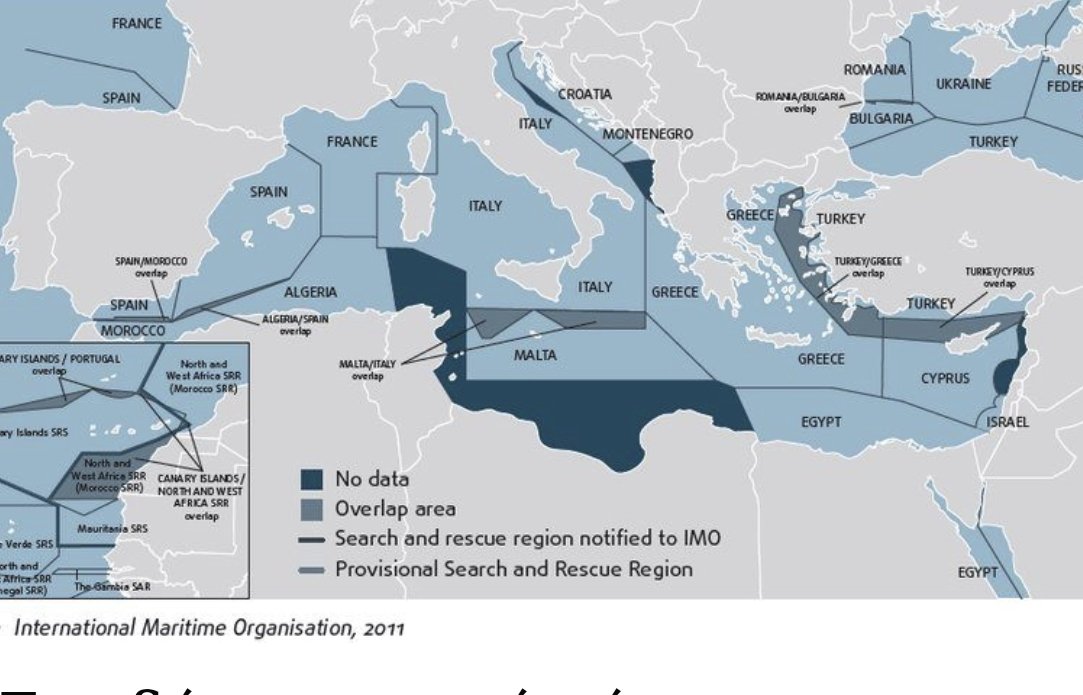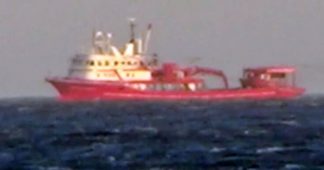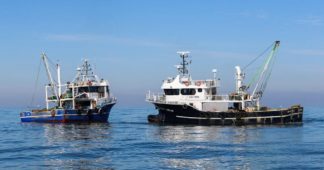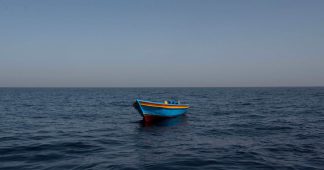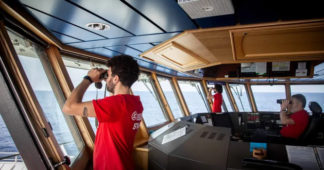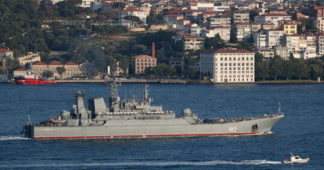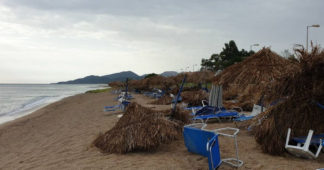Jun 15, 2023
Could the shipwreck tragedy in international waters south off Greece have been avoided? This is the question many pose after details and pictures by the Frontex and the Greek Coast Guard have being released showing that authorizes were close to the overloaded fishing boat before it suddenly capsized and sank taking to the bottom of the sea dozens if not hundreds of desperate passengers.
Already when the boat was spotted on Tuesday noon, the ball of responsibility was jumping between the Frontex, Greece and Italy.
It was initially a member of an NGO that informed authorities, the Frontex informed Rome that informed Athens about the existence of the boat.

FRONTEX picture taken by drone Tuesday afternoon
A Frontex aircraft and a drone were sent to the area, later a helicopter of the Greek Coast Guard.

Greek Coast Guard picture shot around midnight Tuesday or later early morning hours of Wednesday, ‘two hours before the boat sank” so GCG spokesman to Mega TV
Athens responded, made attempts to communicate with the ship and offered help -which was denied, according to the Greek Coast Guard.
The fishing boat was in international waters in the section where Greece has the responsibility for Search-And-Rescue (SAR) operations.
Greek Coast Guard: forceful intervention could have cause a shipwreck
Greek coast guard spokesperson Nikolaos Alexiou told several media that any attempt to forcefully intervene with the vessel carrying hundreds of migrants before it sank, “the coast guard could have caused the shipwreck of the fishing vessel.”
Alexiou rejected criticism about the coast guard’s decision not to intervene after its vessel had approached the overcrowded fishing boat and had seen that hundreds of people were crammed on to its decks.
“If any violent intervention was made on a fishing boat with people packed to the gills, we could have caused the maritime accident. If there was an intervention, there was a risk that we would cause the sinking,” Alexiou stressed.
He denied claims that the coast guard had attempted to tie the fishing boat saying to Mega TV Live News and ANT TV that “a Greek commercial ship participating in the rescue attempt had thrown ropes to the boat: in order to supply the passengers with water.
He denied that the coast guard was a mere observer of the fishing vessel.
“There is no such thing as simple observers who save 104 fellow human beings. We were there trying to get them to get help. The didn’t realize the danger. [There was] good weather, they were sailing normally.”
Asked if the shipwreck could have been avoided, he said that “ten minutes before it sank, it lost its engine. Had that not happened, there probably wouldn’t have been the movement [of people on board].”
“We were not dealing with weapons or drug dealers. A violent intervention on a vessel with so many people” would have led to a shipwreck.
“We stayed by them if they needed us to save people, and that’s what we did. We were notified by the Italian coast guard of the vessel’s existence. We did what we had to do. The vessel was located, approached by commercial vessels, took supplies from one, and then refused.”
“Later, our own vessel arrived but the 25-30 meter boat declared that it did not want to be rescued, they did not want to come to Greece but to reach Italy. Seeing the situation, we didn’t leave … in the early morning hours it lost its engine, the people [on board] moved, it lost the center of gravity and overturned.”
“Tragedy could be avoided if Athens had gone a step further”
The tragedy off Pylos could have been avoided if Athens had taken a step further, believes Christos Baxevanis, former specialist expert on migration and asylum issues at the European Commission with a PhD in Law and International Affairs,
Speaking to daily ethnos.gr, Baxevanis said that article 110 of the law of the sea provides the following: “a warship that meets a foreign ship engaged in the slave trade in the open sea has the right to verify the information. It has the right of surveillance. This could have been done on our end. Had a warship been sent – having all the evidence that it was a slave ship – and thus we might have prohibited the shipwreck.”
He added that the next step could have been taken from Athens beyond the communication it had with the fishing vessel. The situation was badly underestimated and the provision of the law of the sea was not applied. In any case, through the surveillance it would emerge whether or not it was a slave trade. If it wasn’t, it could have continued his course.”
Note, however, that the boat was trafficking its passengers and it was not a slave ship.
Tsipras vs Climate Change Minister
During a visit in Kalamata where the rescued passengers are provisionally settled, main opposition leader Alexis Tsipras was trying to speak with members of the Coast Guard, when the acting Minister of Climate Crisis and Civil Protection, Evangelos Tournas, reportedly intervened defending the Coast Guard,
Tournas noted that the fishing boat refused to accept help, with Tsipras asking “Who refused? The captain is probably also the trafficker and the last thing a trafficker wants is to be arrested.”
The CG officers of the Coast Guard underlined that “in international waters, help must be requested by the captain of the ship. We can’t do it on our own” because, as they said, this “comes from the SAR manual and the relevant convention. Nevertheless, because we saw that the ship is overloaded and saw that there might be danger, we did not leave it. We engaged a drifter and kept forces close to it.”
Tsipras kept on poking and asked “when there is a ship in international waters, where an offense is committed, if it is trafficking drugs, for example, there is interference regardless of whether or not the captain accepts the intervention of the authorities. Isn’t it right? When so many hundreds of human lives are at risk and there is an obvious dimension of the exploitation and illegality by the traffickers – this is an obvious criminal act – does the corresponding framework not exist?”
The officers responded ‘There is, that’s why we were close,” and Tsipras reacted saying: “That’s another thing you’re telling me now. It is different from the first argument. The first argument was if the captain says don’t come, we don’t come. The captain is obviously a criminal. So what will he tell you? Don’t come, because if you do, I’ll go to jail like that and you arrest me?.”
Then, minister Tournas intervened saying “I would not like us to make an effort to investigate the maritime accident, because in terms of the role the bodies are not authorized and do not have the legitimacy to do so at this stage, if I you allow.”
On a side note: nobody understood why the Climate Change Minister was there and why he intervened in the discussion between the CG officers and Tsipras. How much more that Tournas issued a press release about the dialogue.
From all the discussions and arguments regarding the shipwreck I understand one thing:
The FRONTEX and the Greek Coast Guard were just watching how the overloaded fishing boat capsized and sank right in front their eyes.
The rest has to do with the notorious Greek authorities’ problem with “responsibility” or at least investigate the causes of any tragedy that cost dozens of lives like in Mati, in Tempi and now off the Peloponnese.
We remind our readers that publication of articles on our site does not mean that we agree with what is written. Our policy is to publish anything which we consider of interest, so as to assist our readers in forming their opinions. Sometimes we even publish articles with which we totally disagree, since we believe it is important for our readers to be informed on as wide a spectrum of views as possible.
